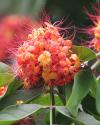
- A
- B
- C
- D
- E
- F
- G
- H
- I
- J
- K
- L
- M
- N
- O
- P
- Q
- R
- S
- T
- U
- V
- W
- X
- Y
- Z
- AA
- AB
- AC
- AD
- AE
- AF
- AG
- AH
- AI
- AJ
- AK
- AL
- AM
- AN
- AO
- AP
- AQ
- AR
- AS
- AT
- AU
- AV
- AW
- AX
- AY
- AZ
- BA
- BB
- BC
- BD
- BE
- BF
- BG
- BH
- BI
- BJ
- BK
- BL
- BM
- BN
- BO
- BP
- BQ
- BR
- BS
- BT
- BU
- BV
- BW
- BX
- BY
- BZ
- CA
- CB
- CC
- CD
- CE
- CF
- CG
- CH
- CI
- CJ
- CK
- CL
- CM
- CN
- CO
- CP
- CQ
- CR
- CS
- CT
- CU
- CV
- CW
- CX
- CY
- CZ
- DA
- DB
- DC
- DD
- DE
- DF
- DG
- DH
- DI
- DJ
- DK
- DL
- DM
- DN
- DO
- DP
- DQ
- DR
- DS
- DT
- DU
- DV
- DW
- DX
- DY
- DZ
- EA
- EB
- EC
- ED
- EE
- EF
- EG
- EH
- EI
- EJ
- EK
- EL
- EM
- EN
- EO
- EP
- EQ
- ER
- ES
- ET
- EU
- EV
- EW
- EX
- EY
- EZ
- FA
- FB
- FC
- FD
- FE
- FF
- FG
- FH
- FI
- FJ
- FK
- FL
- FM
- FN
- FO
- FP
- FQ
- FR
- FS
- FT
- FU
- FV
- FW
- FX
- FY
- FZ
- GA
- GB
- GC
- GD
- GE
- GF
- GG
- GH
- GI
- GJ
- GK
- GL
- GM
- GN
- GO
- GP
- GQ
- GR
- GS
- GT
- GU
- GV
- GW
- GX
- GY
- GZ
- HA
- HB
- HC
- HD
- HE
- HF
- HG
- HH
- HI
- HJ
- HK
- HL
- HM
- HN
- HO
- HP
- HQ
- HR
- HS
- HT
- HU
- HV
- HW
- HX
- HY
- HZ
- IA
- IB
- IC
- ID
- IE
- IF
- IG
- IH
- II
- IJ
- IK
- IL
- IM
- IN
- IO
- IP
- IQ
- IR
- IS
- IT
- IU
- IV
- IW
- IX
- IY
- IZ
- JA
- JB
- JC
- JD
- JE
- JF
- JG
- JH
- JI
- JJ
- JK
- JL
- JM
- JN
- JO
- JP
- JQ
- JR
- JS
- JT
- JU
- JV
- JW
- JX
- JY
- JZ
- KA
- KB
- KC
- KD
- KE
- KF
- KG
- KH
- KI
- KJ
- KK
- KL
- KM
- KN
- KO
- KP
- KQ
- KR
- KS
- KT
- KU
- KV
- KW
- KX
- KY
- KZ
- LA
- LB
- LC
- LD
- LE
- LF
- LG
- LH
- LI
- LJ
- LK
- LL
- LM
- LN
- LO
- LP
- LQ
- LR
- LS
- LT
- LU
- LV
- LW
- LX
- LY
- LZ
- MA
- MB
- MC
- MD
- ME
- MF
- MG
- MH
- MI
- MJ
- MK
- ML
- MM
- MN
- MO
- MP
- MQ
- MR
- MS
- MT
- MU
- MV
- MW
- MX
- MY
- MZ
- NA
- NB
- NC
- ND
- NE
- NF
- NG
- NH
- NI
- NJ
- NK
- NL
- NM
- NN
- NO
- NP
- NQ
- NR
- NS
- NT
- NU
- NV
- NW
- NX
- NY
- NZ
- OA
- OB
- OC
- OD
- OE
- OF
- OG
- OH
- OI
- OJ
- OK
- OL
- OM
- ON
- OO
- OP
- OQ
- OR
- OS
- OT
- OU
- OV
- OW
- OX
- OY
- OZ
- PA
- PB
- PC
- PD
- PE
- PF
- PG
- PH
- PI
- PJ
- PK
- PL
- PM
- PN
- PO
- PP
- PQ
- PR
- PS
- PT
- PU
- PV
- PW
- PX
- PY
- PZ
- QA
- QB
- QC
- QD
- QE
- QF
- QG
- QH
- QI
- QJ
- QK
- QL
- QM
- QN
- QO
- QP
- QR
- QS
- QT
- QU
- QV
- QW
- QX
- QY
- QZ
- RA
- RB
- RC
- RD
- RE
- RF
- RG
- RH
- RI
- RJ
- RK
- RL
- RM
- RN
- RO
- RP
- RQ
- RR
- RS
- RT
- RU
- RV
- RW
- RX
- RY
- RZ
- SA
- SB
- SC
- SD
- SE
- SF
- SG
- SH
- SI
- SJ
- SK
- SL
- SM
- SN
- SO
- SP
- SQ
- SR
- SS
- ST
- SU
- SV
- SW
- SX
- SY
- SZ
- TA
- TB
- TC
- TD
- TE
- TF
- TG
- TH
- TI
- TJ
- TK
- TL
- TM
- TN
- TO
- TP
- TQ
- TR
- TS
- TT
- TU
- TV
- TW
- TX
- TY
- TZ
- UA
- UB
- UC
- UD
- UE
- UF
- UG
- UH
- UI
- UJ
- UK
- UL
- UM
- UN
- UO
- UP
- UQ
- UR
- US
- UT
- UU
- UV
- UW
- UX
- UY
- UZ
- VA
- VB
- VC
- VD
- VE
- VF
- VG
- VH
- VI
- VJ
- VK
- VL
- VM
- VN
- VO
- VP
- VQ
- VR
- VS
- VT
- VU
- VV
- VW
- VX
- VY
- VZ
- WA
- WB
- WC
- WD
- WE
- WF
- WG
- WH
- WI
- WJ
- WK
- WL
- WM
- WN
- WO
- WP
- WQ
- WR
- WS
- WT
- WU
- WV
- WW
- WX
- WY
- WZ
- XA
- XB
- XC
- XD
- XE
- XF
- XG
- XH
- XI
- XJ
- XK
- XL
- XM
- XN
- XO
- XP
- XQ
- XR
- XS
- XT
- XU
- XV
- XW
- XX
- XY
- XZ
- YA
- YB
- YC
- YD
- YE
- YF
- YG
- YH
- YI
- YJ
- YK
- YL
- YM
- YN
- YO
- YP
- YQ
- YR
- YS
- YT
- YU
- YV
- YW
- YX
- YY
- YZ

English Name: Asok tree
Hindi Name: Ashoka
Sanskrit Name: Kankeli
Latin Name: Saraca indica Pennell
Indigenous to India, Burma and Malaya, it is an erect tree, small and evergreen, with a smooth, grey-brown bark. The crown is compact and shapely. Flowers are usually to be seen throughout the year, but it is in January and February that the profusion of orange and scarlet clusters turns the tree into an object of startling beauty. Pinned closely on to every branch and twig, these clusters consist of numerous, small, long-tube flowers, which open out into four oval lobes. Young leaves are soft, red and limp and remain pendent even after attaining full size. The straight or scimitar shaped pods, stiff, leathery, broad and about eight inches long, is red and fleshy before ripening.
Application
Ashoka has been traditionally used as a uterine tonic and has been indicated in menstrual irregularities ESP in DUB. Ashoka happens to be a uterine stimulant and increases uterine contractions. It also stimulates the ovarian tissue.
Chemical composition
The bark of Saraca indica is rich in Hematoxylin, tannins, Ketosterols, catechins, epicatechine, leicocyanides, leucoplargonidin, glycosides, Saponins etc.
Effect on dosha
Pacifies Kapha and Pitta.










